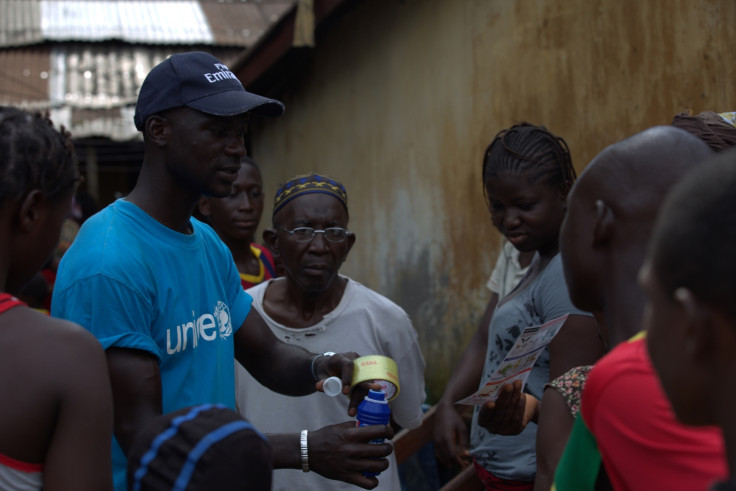Ebola: Hunger And Poverty Threatening To Disrupt Peace In Liberia

The Liberian government has began distributing bags of rice and water to people in the impoverished quarantine areas.
But international workers on the ground say that more help is required to battle hunger and poverty, according to an AP report.
"At the moment West Point is stuck at a standstill and is in an anarchy situation," said Moses Browne, who works for aid group Plan International in Liberia.
The World Food Programme is gearing up for the task.
The poor neighbourhoods of Liberia's capital Monrovia have quietened down after the clash, with security forces following the barricades set up all around. But the situation is far from peaceful and is likely to explode unless essential supplies reach the people soon.
Meanwhile, distrust and fear continue to hamper health care workers, reports CNN. In many places the workers were even stoned by the public wary about their intentions, believing they were infecting them.
The West African perception of western health professionals is based on a serious of unfortunate past experiences, notably in Nigeria in 1996 when Pfizer tried its experimental drug Trovan during a meningitis epidemic, resulting in permanently disabling almost 95% of the 200 children treated.
Amidst all this, miracle cures are being offered by people who claim that raw onions, coffee and condensed milk can help get rid of the virus. The WHO reports that at least two people died in Nigeria as a result of drinking salt water touted as a cure.
To break the hold of superstition and distrust, more volunteers are needed to create awareness of how Ebola spreads.
"We have about 250 community health workers going village by village to give the right message to the population," says Anja Wolz, MSF's emergency coordinator in Kailakun, Sierra Leone.
© Copyright IBTimes 2024. All rights reserved.





